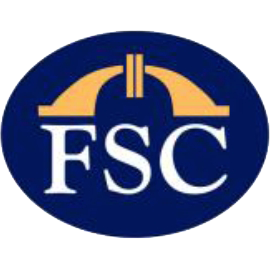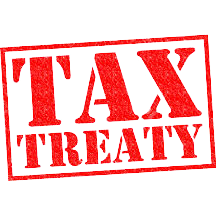Fax: (230) 454 9671
Email: info@gwms.mu
- Menu
- Home
- About
- Offices
- About Mauritius
Demographics
Capital Port Louis Government Parliamentary Republic Area 2 040 km2 (788 sq. miles) Population 1.3 million (approx.) Currency Mauritian rupee (= 100 cents) Main languages English, French, Kreol morisien Other spoken languages Hindi, Urdu, Mandarin, Tamil, Telugu, Marathi, Gujarati, Bhojpuri Time zone GMT + 4 hours Calling code +230 
- Regulatory & Tax
Financial Services Commission

The Financial Services Commission (FSC) was established as the regulator for the non-bank financial services sector under the Financial Services Development Act 2001. More...
Tax Treaties

So far Mauritius has concluded 35 tax treaties and is party to a series of treaties under negotiation. Most of the treaties in force have been in existence as from the period when Mauritius launched its global business sector in 1992. More...
Regulatory Framework
The enabling legislation that governs the Global Business sector are the Companies Act 2001, Financial Services Act 2007, Trusts Act 2001, Securities Act 2005, as well as FSC Rules, Codes and Circulars. More...
- Global Solutions
Global Fund Solutions

Mauritius is now recognized as a leading international financial centre for global fund structuring and administration, for investment particularly in Indian, Asian, Middle East and African countries. More...
Global Business Solutions

GWMS is staffed with a skilled and experienced corporate team who can handle any company law or regulatory framework queries and your statutory obligations. More...
Mauritius Real Estate
Mauritius offers world class real estate residential properties that may be acquired by international investors. These include golf estates, inland or residential properties having a marina concept. More...
- Publications
Articles by Mr. Kamal Hawabhay
A series of articles written by the Managing Director of GWMS. More...
Global Business Updates
Download the latest updates related to Global Business, provided by GWMS. More...
Information Packs
Downloadable infopacks prepared for international investors and businesses who are seeking a cost and tax efficient jurisdiction for the structuring of their international business activities. More...
- News
- Careers
- Contact
Contact us
Should you have any query, comment or suggestion, please fill the form below:
Articles by Kamal Hawabhay
June 2012
The Mauritius India Saga - A modern tale of David and Goliath... with countless twists!
International Taxation, Vol. 6, June 2012, pages 15-23
During the years 1849 to 1923, a half million indentured labourers passed through the immigration depot known as the Apravasi Ghat to work the sugar plantations at Mauritius. Hard work it was for their lot but they chose it voluntarily because their conditions were better than in India.
January 2011
BOI meets Kamal Hawabhay, Managing Director of Global Wealth Management Solutions Ltd
Board of Investment Newsletter, Issue No. 26
Mr Hawabhay, how has Mauritius evolved as an International Financial Centre since the early 1990s. The emergence of the financial industry in Mauritius started with thediversification strategy of the economy in the 1990s. Mauritius as an IFChas since gone a long way to now become the 3rd pillar of theeconomy. The emergence and steady growth of the Global Businesssector was largely due to the foresight and support of successivegovernments which put in place the necessary fiscal incentives andflexible regulatory and legislative framework, albeit based on bestpractice during the first decade, through initiatives like the establishmentof a stock exchange in 1989 and an expanding network of double taxavoidance treaties and Investment Protection Agreements.
July 2003
A Review of the New Tax Planning Opportunities in Singapore
Tax International Planning Review
On February 28, 2003, Singapore's Finance Minister delivered his 2003 Budget Statement. The Finance Minister announced that, to attract investors and boost exports, a tax exemption will be granted to both individuals and companies, for all foreign-sourced dividend, foreign branch profits and foreign-sourced service income (collectively the "specified foreign income") remitted to Singapore from June 1, 2003 if such income is earned from jurisdictions with "headline" tax rates of at least 15%.
June 2003
Is the Mauritius-India Route Well and Truly Kaput?
Tax International Planning Review
World Corporate Finance Review
Following the issue of the Indian budget proposals for hte financial year 2003-2004 innumerable budget highlights, briefs and summaries have circulated in India and abroad to explain Minister Jaswant Singh's recipe for improvement of India Inc. Most, if not all, of these budget-related documents have at least one thing in common: either a separate or highlighted paragraph explaining why offhsore structuring of investments into India might no longer be required in the wake of the proposed removal of long-term capital gains tax on the tyransfer of disposal of listed investments, subject to certain conditions, and the proposed removal of shareholders' tax on dividends and its replacement by the familiar dividend distribution tax. With regards to investments, doubts are being expressed as to whether Mauritius is still the preferred route to India.
April 2003
Revisiting Mauritius/South Africa Double Tax Avoidance Treaty
Tax International Planning Review
In his Budget 2003-2004 (the "Budget"), the South African Finance Minister, Trevor Manuel, proposed an amnesty process with regards to South African resident taxpayers who have illegal money offshore. The amnesty will cover all income tax and exchange control taxes, penalties, interest charges and civil convictions up until February 28, 2003, in exchange for the payment of a small fine of 5% for all foreign assets that are repatriated to South Africa and a one-time exchange control levy of 10% for all foreign assets remaining offshore.
